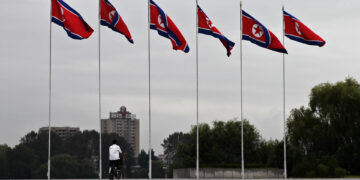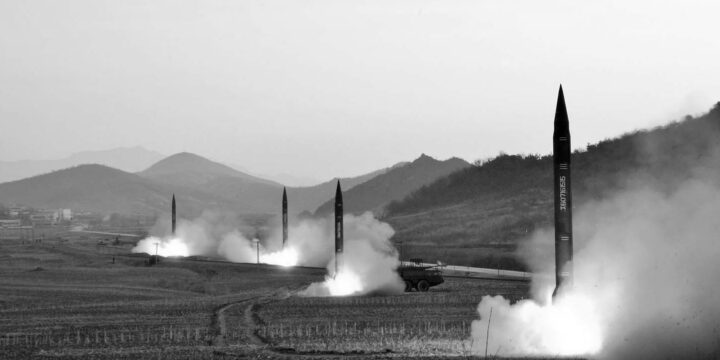FOR IMMEDIATE RELEASE:
December 6, 2017
Contact: press@defensepriorities.org
WASHINGTON, DC—The New York Times today published an opinion editorial by Barry R. Posen, Ford International Professor of Political Science and Director of Security Studies Program at MIT and author of Restraint: A New Foundation for U.S. Grand Strategy. In this piece, Posen outlines the sacrifices the United States would have to make in order to deprive North Korea of its nuclear capabilities and missile systems. He concludes that the complexity, risks, and costs of preventive war against North Korea are too great—thus deterrence paired with diplomacy is the best available policy option.
The key problem for the United States is the likely possibility that North Korea has the missiles to deliver nuclear bombs to South Korea and Japan. If one of these weapons were to reach its target, an entire city would be annihilated.
And even if an American first strike knocked out North Korea’s nuclear capacity, millions of South Korean civilians, and American and South Korean soldiers, would be vulnerable to retaliation with conventional or chemical weapons. Pyongyang could devastate Seoul and kill tens of thousands of people.
North Korea may have as many as 250 mobile missile launchers, some of which could fire nuclear-tipped missiles. If some of these mobile units were dispersed at the time of an American attack, it’s unlikely that the United States could destroy all of them before one fires a missile.
An American attack that truly caught North Korea by surprise could minimize the effectiveness of a North Korean counterattack—but not eliminate the possibility. And surprise would be difficult, if not impossible, to achieve.
The complexity, risks and costs of a military strike against North Korea are too high. A combination of diplomacy and deterrence, based on the already impressive strength of South Korean and United States conventional and nuclear forces, is a wise alternative.
Read the entire op-ed in The New York Times.
Author

Barry
Posen
Ford International Professor of Political Science, Security Studies Program
More on Asia

By John Mueller
April 10, 2025

Featuring Jennifer Kavanagh
April 2, 2025

Featuring Lyle Goldstein
April 1, 2025
Featuring Jennifer Kavanagh
March 27, 2025



